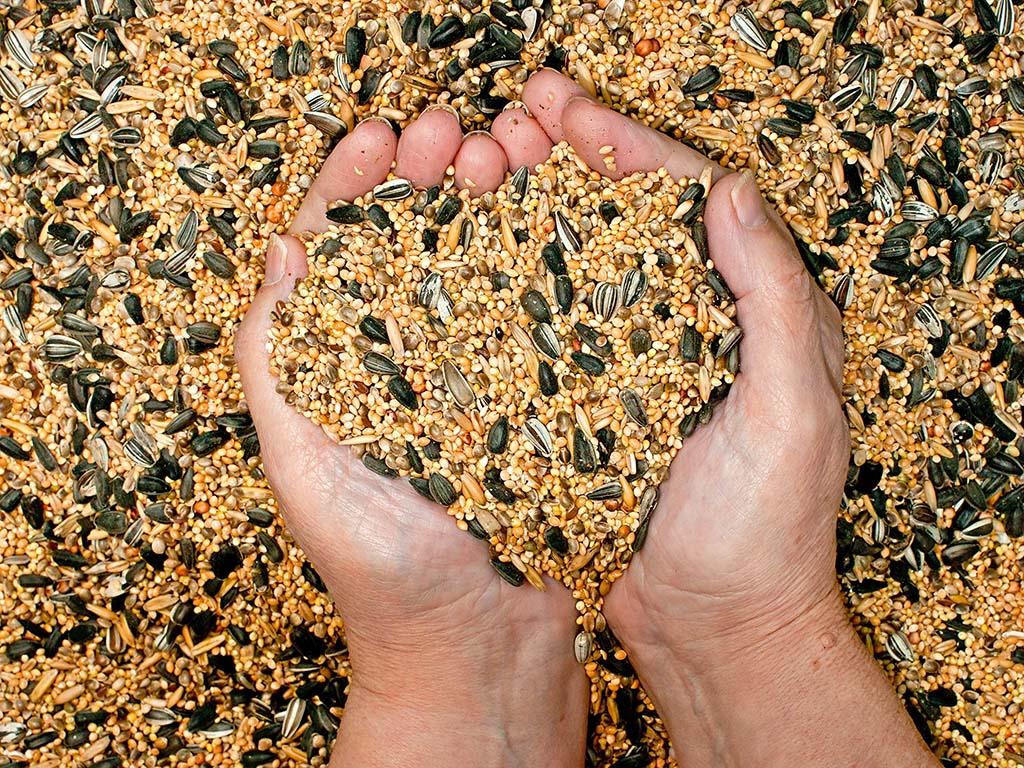Feeding Birds the Organic Way: Creating a Safe, Nourishing Sanctuary in Your Yard
Birds, like people, thrive when they’re nourished with pure, wholesome food. When we offer them organic, natural options, we’re not just feeding them — we’re restoring a piece of the ecosystem and deepening our connection with the wild around us. By thoughtfully planting and feeding in ways that honor the Earth, your yard can become a healing haven for birds and people alike.
Seeds: Nature’s Simplicity
Choosing organic or untreated birdseed is an important first step. Many commercially available seeds are sprayed with pesticides or treated with preservatives, which can harm birds and the soil beneath your feeder.
1. Black Oil Sunflower Seeds
High in natural fats and protein, these seeds are favorites of goldfinches, cardinals, chickadees, titmice, woodpeckers, and more. Choose organic if possible, or source from a grower who doesn’t use synthetic chemicals.
2. Hulled Sunflower Seeds (Sunflower Hearts)
A mess-free option (no shells!), these are ideal for the same species and help keep the ground below your feeder clean. Look for untreated versions.
3. Safflower Seeds
Loved by cardinals, finches, doves, and titmice — and less appealing to more aggressive birds like grackles. Another great option when organically grown.
4. Nyjer (Thistle) Seeds
These tiny, oil-rich seeds attract goldfinches, Pine Siskins, and Indigo Buntings. Since Nyjer is often heat-treated for import, ensure no additional coatings or chemicals are added.
5. White Proso Millet
Preferred by sparrows, juncos, and buntings, millet should be clean and pesticide-free.
Skip Common Seed Mixes
Most generic seed blends are filled with filler seeds (like red milo) that birds don’t eat — and worse, many are chemically treated. Avoid mixes unless you know exactly what’s inside and how it was grown.
Beyond Seeds: Organic Treats for Your Feathered Friends
6. Suet (Cool Weather Only)
Offer clean, additive-free suet from organically raised animals or make your own with organic ingredients. Avoid suet in warm weather, as it can spoil quickly and harm birds.
7. Organic Fruit
Oranges, apples, grapes, and berries can draw tanagers, orioles, and other fruit-loving birds. Choose fresh, organic fruit and avoid anything with added sugar or preservatives.
8. Mealworms
Live or dried, mealworms are packed with protein and loved by bluebirds and wrens. Choose mealworms raised without synthetic additives or chemicals — and offer them especially in winter and early spring.
Nectar: Do No Harm
Plant nectar-rich flowers! This is the most natural and nourishing way to support hummingbirds. Flowers like bee balm, cardinal flower, and columbine not only feed hummingbirds but also support native pollinators and beautify your space.
If using a feeder:
-
Avoid all commercial nectar and red dyes. These are unnecessary and potentially harmful.
-
Make your own by boiling 1 part organic cane sugar to 4 parts filtered water.
-
Let it cool completely before filling the feeder. Hot nectar can burn or kill hummingbirds.
-
In cool weather, clean and refill every 2–3 days.
-
In hot weather, clean and change the nectar daily or every other day to prevent mold and fermentation.
The Ultimate Offering: Plants and Trees
Creating a true sanctuary goes beyond feeding — it includes planting for the birds. Focus on:
-
Flowering plants with nectar-rich blooms (zinnias, echinacea, salvia)
-
Berry-producing shrubs (elderberry, serviceberry, viburnum)
-
Fruit trees (apple, pear, plum — organic and untreated)
-
Insect-supporting trees (oak, willow, crabapple) that provide food for nesting birds and their young
These plants offer natural food, shelter, and nesting material — and they invite more life into your space, all without a plastic feeder in sight.
Feeding birds organically is about more than what’s in the feeder — it’s about your whole approach. When you say no to chemicals, yes to plants, and yes to life, you turn your yard into a place where birds can truly fare — not just survive. It’s simple, sacred stewardship.
